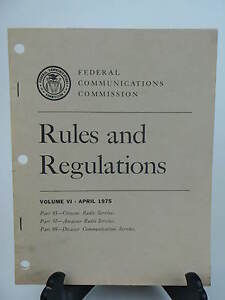 In the world of broadcasting, community engagement and local voices hold significant value. Low Power FM (LPFM) radio stations play a vital role in providing unique, localized content, and the 2023 LPFM Radio Filing Window presents a golden opportunity for individuals, organizations, and communities to make their voices heard. The importance of this filing window cannot be overstated, and being prepared and starting the process right now is crucial to maximizing the benefits it offers.
In the world of broadcasting, community engagement and local voices hold significant value. Low Power FM (LPFM) radio stations play a vital role in providing unique, localized content, and the 2023 LPFM Radio Filing Window presents a golden opportunity for individuals, organizations, and communities to make their voices heard. The importance of this filing window cannot be overstated, and being prepared and starting the process right now is crucial to maximizing the benefits it offers.
What is the 2023 LPFM Radio Filing Window?
The LPFM service was established by the Federal Communications Commission (FCC) in the United States to create opportunities for non-commercial, educational, and locally focused radio stations. LPFM stations operate with lower power and coverage compared to traditional FM stations, but they provide hyper-local content, cater to niche communities, and foster inclusivity.
The 2023 LPFM Radio Filing Window is a specific period during which interested parties can apply for new LPFM station licenses. Such opportunities are infrequent and may only occur every few years, making this a rare chance for aspiring broadcasters to secure their place on the airwaves.
The Importance of the 2023 LPFM Radio Filing Window
- Empowerment of Local Voices: LPFM stations give a voice to the local community, allowing them to share their stories, concerns, and perspectives. These stations often cover topics that may not receive attention from larger media outlets, fostering a deeper sense of community and encouraging civic engagement.
- Diversity and Representation: Traditional radio stations often overlook the diverse range of voices within communities. LPFM stations, on the other hand, can cater to specific cultural, ethnic, or interest-based communities, promoting inclusivity and representation of underrepresented groups.
- Educational and Informative Content: LPFM stations can serve as valuable educational resources, providing content on local history, culture, and relevant issues. They can also promote local events, initiatives, and resources, contributing to community development.
- Crisis Communication and Public Service: In times of emergencies or disasters, LPFM stations can become essential tools for disseminating vital information to the local population. They can serve as a lifeline during crises, keeping communities informed and safe.
- Fostering Creativity and Talent: The availability of LPFM licenses encourages individuals with creative ideas and talents to explore broadcasting as a medium. It provides a platform for aspiring radio hosts, journalists, musicians, and podcasters to develop their skills and pursue their passions.
Why Start Now?
The process of establishing an LPFM station is not instantaneous. It requires careful planning, coordination, and adherence to FCC regulations. By starting the preparation process now, potential applicants can:
- Identify and Rally Community Support: Building community support is a critical aspect of the LPFM application process. Starting early allows applicants to reach out to local organizations, stakeholders, and potential listeners to garner backing for their station.
- Conduct Feasibility Studies: Feasibility studies help assess the viability of the station’s success, potential audience size, and revenue streams. Conducting these studies in advance provides ample time to make necessary adjustments to the business plan.
- Navigate Regulatory Requirements: The FCC has specific rules and guidelines for LPFM stations. Starting early allows potential applicants to familiarize themselves with these regulations and ensure compliance during the application process.
- Secure Funding and Resources: Establishing an LPFM station requires financial investment and access to resources. Starting early provides time to explore funding options, seek grants, and gather necessary equipment and facilities.
- Consult with Experts: Seeking advice from industry experts and experienced broadcasters can be invaluable. By starting early, applicants have more time to network and gain insights from those with prior experience in the field.
The 2023 LPFM Radio Filing Window presents an exceptional opportunity for communities and individuals to create radio stations that genuinely represent their local interests and values. Its importance lies in empowering local voices, promoting diversity, and fostering educational content. To maximize the chances of success, potential applicants must begin their preparations now to secure community support, navigate regulatory requirements, and secure the necessary resources. By doing so, they can make the most of this rare chance to contribute to their communities and leave a lasting impact on the airwaves.




